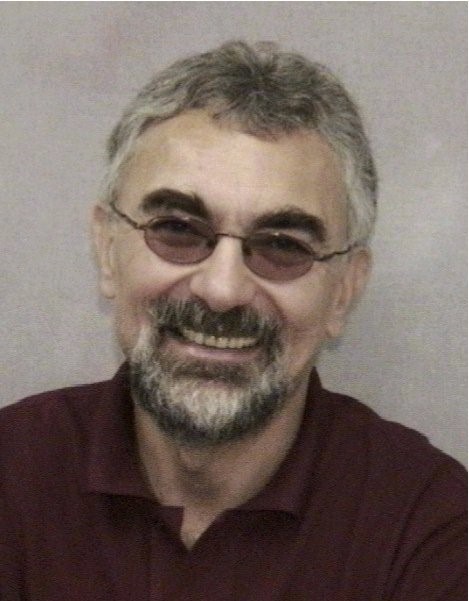【百家大講堂】第200期:機(jī)器學(xué)習(xí)輔助的無線技術(shù):過去、現(xiàn)狀與未來
來源: 發(fā)布日期:2019-05-21
【百家大講堂】第200 期:機(jī)器學(xué)習(xí)輔助的無線技術(shù):過去、現(xiàn)狀與未來
講座題目:機(jī)器學(xué)習(xí)輔助的無線技術(shù):過去、現(xiàn)狀與未來
報(bào) 告 人:教授Lajos Hanzo
時(shí) 間:2019年5 月30日下午14:30-16:30
地 點(diǎn):信息科學(xué)實(shí)驗(yàn)樓202報(bào)告廳
主辦單位:研究生院、信息與電子學(xué)院
報(bào)名方式:登錄北京理工大學(xué)微信企業(yè)號(hào)---第二課堂---課程報(bào)名中選擇“【百家大講堂】第200期:機(jī)器學(xué)習(xí)輔助的無線技術(shù):過去、現(xiàn)狀與未來 ”
【主講人簡(jiǎn)介】

Lajos Hanzo教授:于1983年在布達(dá)佩斯技術(shù)大學(xué)獲得博士學(xué)位,于2004年在英國(guó)南安普敦大學(xué)被授予榮譽(yù)博士學(xué)位,目前是英國(guó)皇家工程院院士,電子電氣工程師協(xié)會(huì)會(huì)士(IEEE Fellow),工程技術(shù)協(xié)會(huì)會(huì)士(IET Fellow),IEEE通信學(xué)會(huì)Governor,IEEE車載技術(shù)學(xué)會(huì)Governor,清華大學(xué)信息科學(xué)與技術(shù)國(guó)家實(shí)驗(yàn)室講席教授,在IEEE期刊及會(huì)議上發(fā)表文章超過1700篇,著有20多本學(xué)術(shù)著作。Hanzo教授擔(dān)任了多次國(guó)際學(xué)術(shù)會(huì)議總主席或技術(shù)程序委員會(huì)主席,他在2008年-2012年期間還擔(dān)任了IEEE出版社主編。
主講人簡(jiǎn)介(英文)
Lajos Hanzo received his Doctorate in 1983 from the Technical University of Budapest and was awarded the Doctor of Science degree from the University of Southampton in 2004. He is a Fellow of the Royal Academy of Engineering (FREng), FIEEE, FIET. He is a Govenor of the IEEE ComSoc and IEEE VTS. He is also a Chaired Professor at Tsinghua University. Prof. Hanzo has co-authored 20 books and published more than 1700 research papers in at IEEE Xplore. He has also organized and chaired major IEEE conferences. During 2008 to 2012, he was the Editor-in-Chief of the IEEE Press.
【講座信息】
雖然對(duì)未來的研究方向進(jìn)行預(yù)測(cè)充滿著挑戰(zhàn)性,但同時(shí)也給予了我們“未卜先知”的特權(quán)。本次報(bào)告將從更廣泛的視角出發(fā),以(A)性能指標(biāo),(B)設(shè)計(jì)和優(yōu)化工具以及(C)解決方案和應(yīng)用這三個(gè)不同的角度探索未來的無線技術(shù)。目前學(xué)術(shù)界的研究熱點(diǎn)是設(shè)計(jì)基于帕累托最優(yōu)的無線系統(tǒng)。對(duì)于一個(gè)帕累托最優(yōu)系統(tǒng)而言,只能通過降低系統(tǒng)的一部分效能以改進(jìn)上述提到的性能指標(biāo)。為設(shè)計(jì)滿足帕累托最優(yōu)的系統(tǒng),必須采用基于生物啟發(fā)、機(jī)器學(xué)習(xí)和量子搜索輔助的優(yōu)化技術(shù),并借助多元優(yōu)化算法,而這些算法具有巨大的搜索空間。接下來讓我們探討如何解決所面臨的這些挑戰(zhàn)!
內(nèi)容簡(jiǎn)介(英文,如有)
It is always a challenge, but also a privilege to embark on `crystal-ball gazing', when we try and predict the directions of frontier-research beyond the horizon. So, valued Colleague, let's just just that together! Commencing on a broad note, let's adopt a light-hearted three-pronged approach, touching upon A/ the performance metrics; B/ the design and optimization tools and C/ compelling solutions/applications; Our research community is now poised to enter the era of designing Pareto-optimum systems, where - by definition - it is only possible to improve any of the above-mentioned metrics at the cost of degrading some of the others. Sophisticated bio-inspired, machine-learning and quantum-search assisted optimization techniques will have to be used for designing Pareto-optimum solutions with the aid of multi-component optimization algorithms, which tend to have a large search-space. We have some exciting research challenges ahead...!
